Curriculum
At Lockleys North Primary school we believe that all learners can and will be successful. Our vision is to develop a community of empowered learners who strive for success. Our values shape our vision, beliefs and way of being. Respect, Care and Concern, Honesty and Pursuit of Excellence guide every part of our culture, relationships, and teaching and learning.
The Australian Curriculum sets out the essential knowledge, understanding and skills students need to learn, and the quality of learning that is expected of the students as they progress through schooling. The curriculum is designed to prepare young people for the future world in which they will learn, and prepares them to respond to the challenges that will continue to shape their world. It sets out the priorities and aspirations we hold for all our young people.
As children have a natural curiosity about their world, their desire to make sense of the world provides a platform to plan and review their learning through interactions with others, experimentation, scaffolding, explicit teaching, practice and play in the classroom and beyond.
At Lockleys North Primary school we implement the Australian Curriculum and design learning experiences that are engaging and meaningful. Our teachers plan and deliver experiences which nurture curiosity and cater for the wide range of abilities, needs and interests of students.
Our vision is to deliver a high-quality learning program / experiences that maximises each student’s learning potential and builds knowledge and skill at a pace and in a manner that ensures every child masters the concepts outlined in the Australian curriculum.
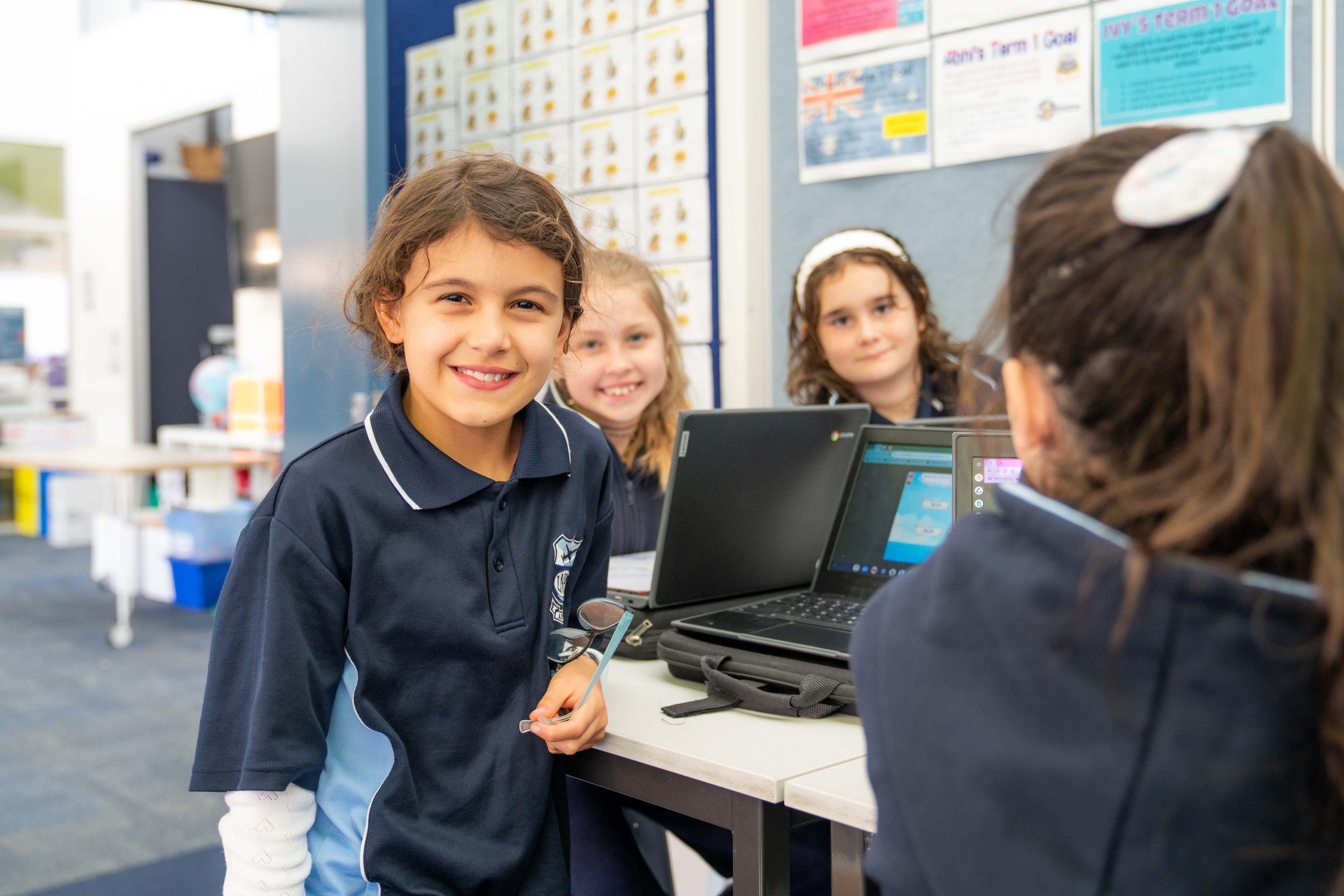
Learning Areas
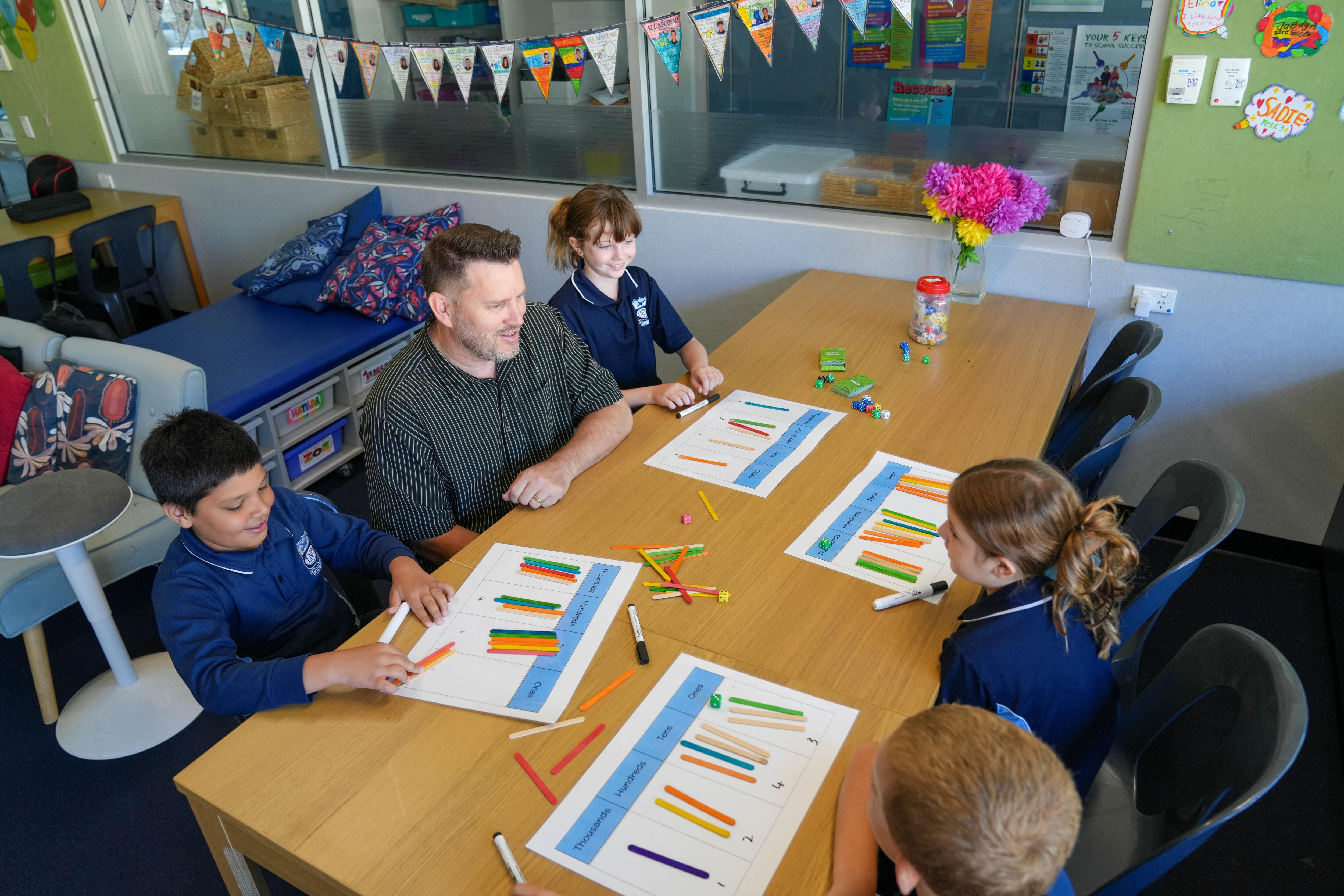
Numeracy
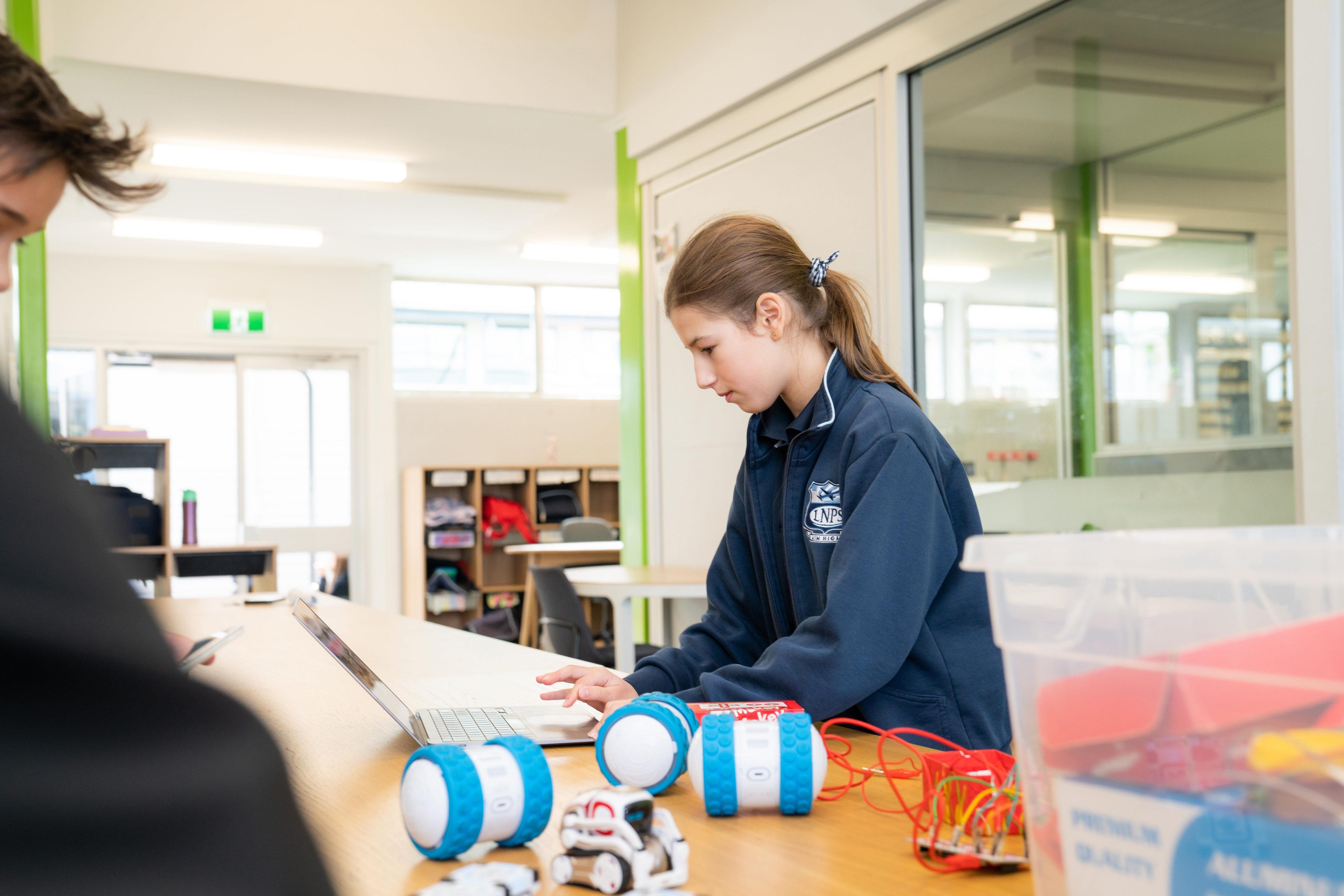
Specialist Lessons
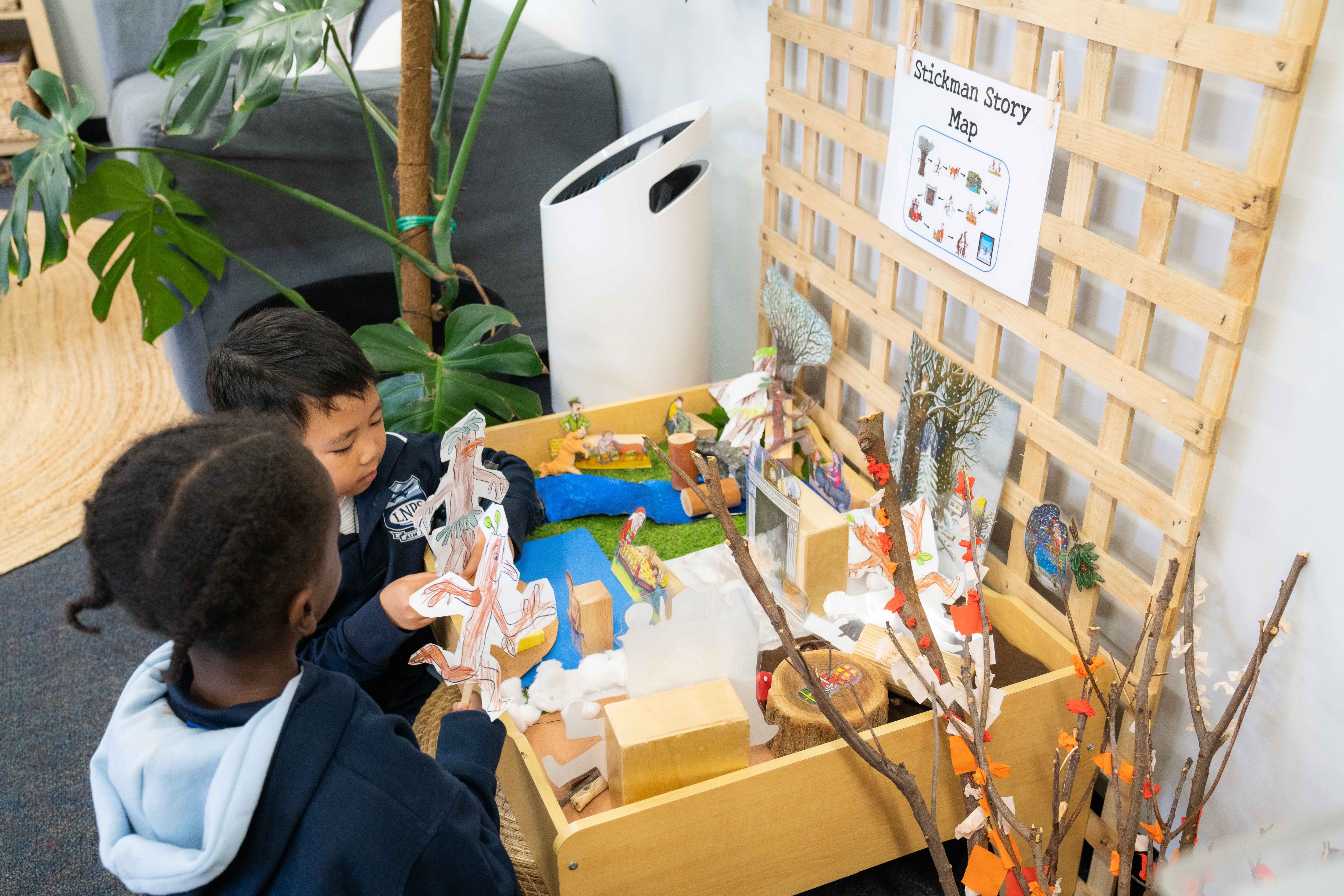
Inquiry Learning
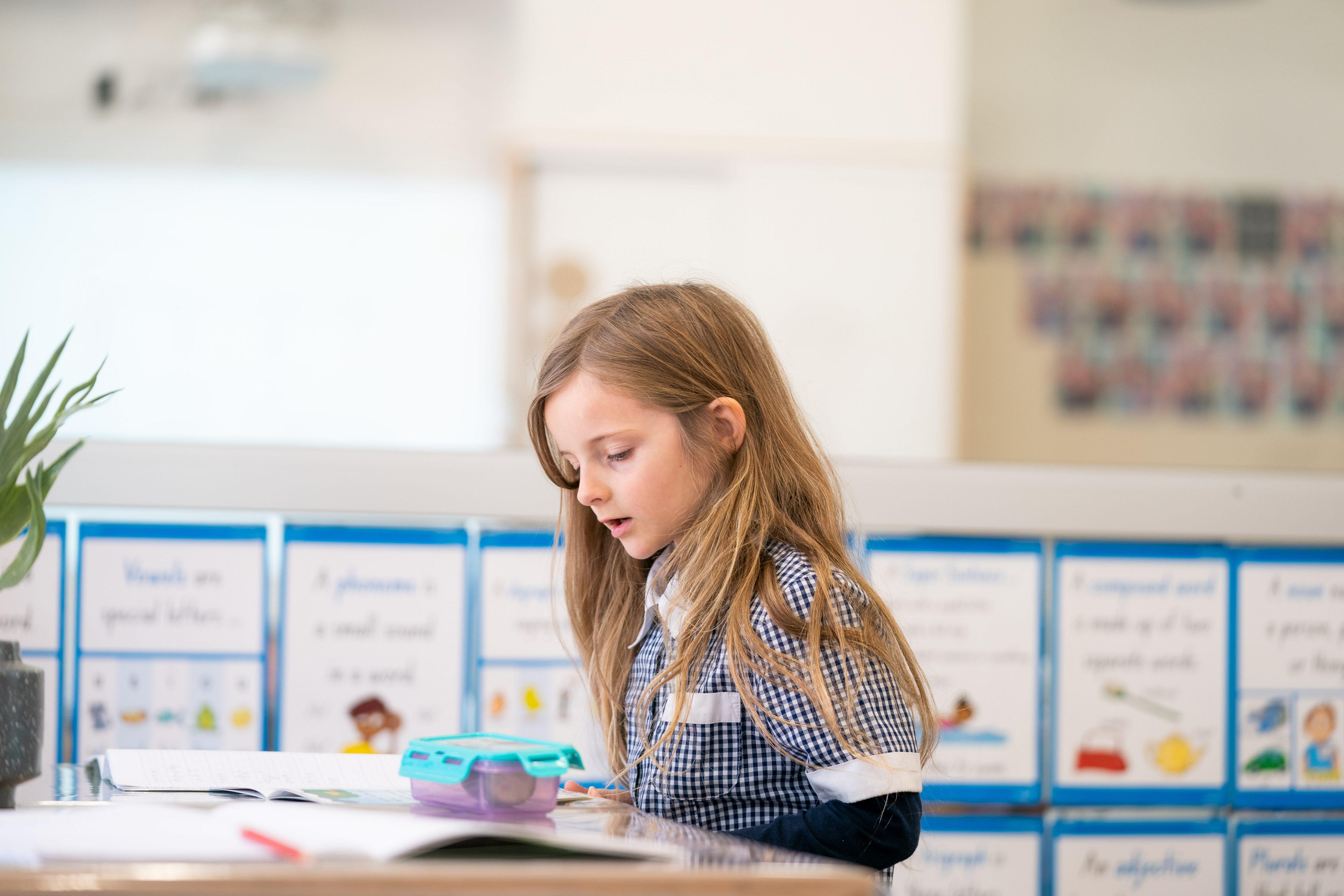
Literacy
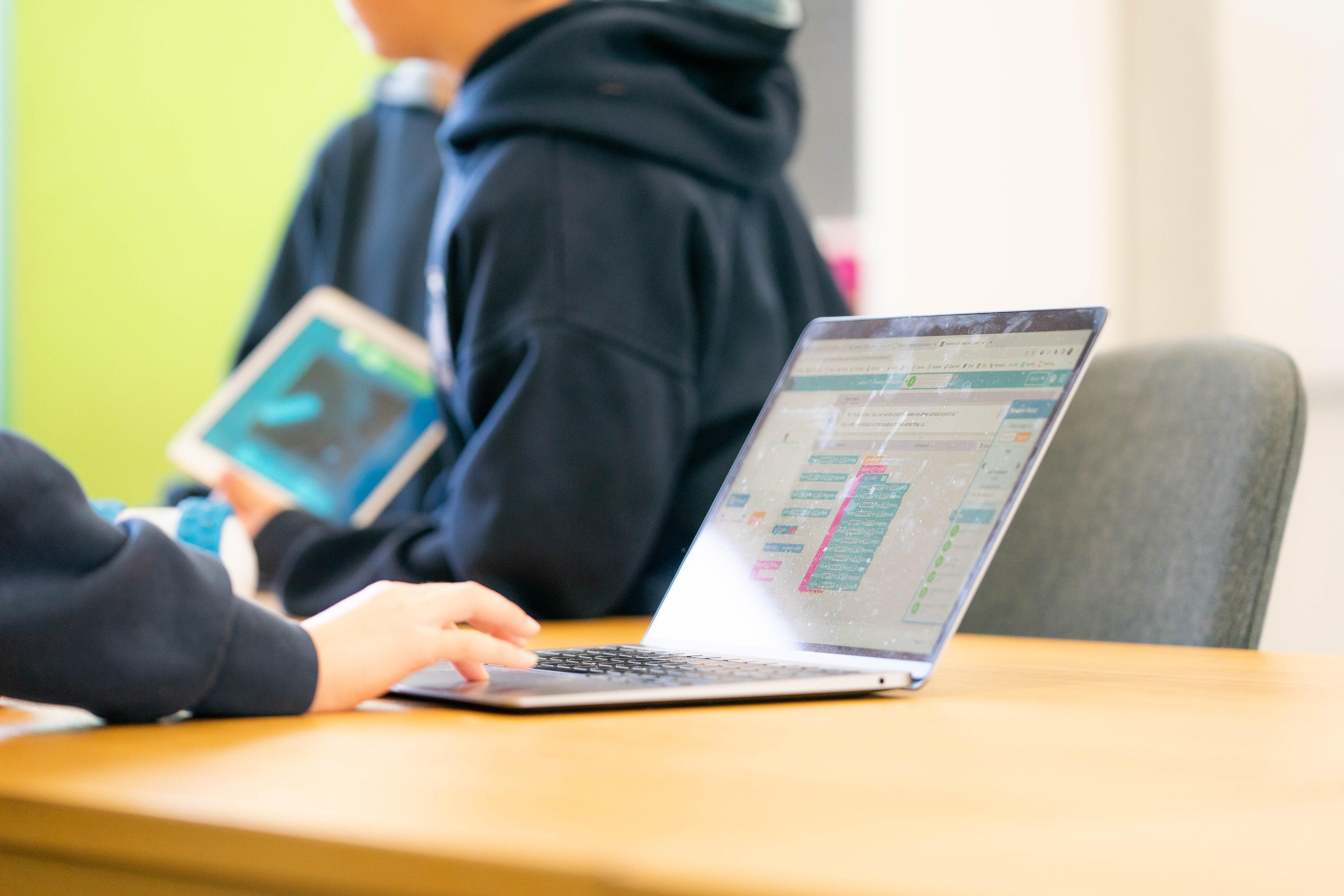
Digital Learning
Learning Areas
- English
- Mathematics
- Humanities and Social Sciences (HASS)
- Health and Physical Education
- Science
- Technologies
- The Arts
- Languages: German
 Digital Learning
Digital Learning
Digital learning at LNPS encompasses the knowledge and skills students need to create, manage, communicate and investigate data, information and ideas, and solve problems. It assists students to work collaboratively at school and in their lives beyond school.
Digital learning involves students critically identifying and appropriately selecting and using digital devices or systems, and learning to make the most of the technologies available to them. Students adapt to new ways of doing things as technologies evolve, and protect the safety of themselves and others in digital environments.
 Specialist Lessons
Specialist Lessons
Students at Lockleys North Primary School participate in a range of specialist programs including Science, Physical Education, Arts and German.
Ours Arts program offers students the opportunity to study all five subjects (Music, Visual Arts, Drama, Dance and Media Arts).
Our Health and Physical Education program promotes physical activity, health and wellbeing. Students learn through movement and engage in activities which promote a safe and healthy lifestyle.
Our Science program allows students to explore change in the world around them, including changes that impact on them. Our Science program allows students to explore change in the world around them, including changes that impact on them. Students use their senses to gather different types of information. They learn that seeking answers to questions they pose and making observations is what Science is all about.
Our German languages program recognises that students bring their own linguistic and cultural background to their learning. When learning German, students engage with the sounds, patterns and structure of the German language through interactive learning experiences using language in context. Oral language often takes the form of rhyme, songs and role play.
 Literacy
Literacy
Literacy is fundamental to a student’s ability to learn at school and to engage productively in society.
In the Australian Curriculum, students become literate as they develop the knowledge, skills and dispositions to interpret and use language confidently for learning and communicating in and out of school and for participating effectively in society. Literacy involves students listening to, reading, viewing, speaking, writing and creating oral, print, visual and digital texts, and using and modifying language for different purposes in a range of contexts.
Learn more about Literacy learning;
Early Years (R-2)
Torrens (Years 3-4)
Fisher (Years 4-6)
 Numeracy
Numeracy
Numeracy is fundamental to a student’s ability to learn at school and to engage productively in society.
In the Australian Curriculum, students become numerate as they develop the knowledge and skills to use mathematics confidently across learning areas at school and in their lives more broadly. It involves students recognising and understanding the role of mathematics in the world and having the dispositions and capacities to use mathematical knowledge and skills purposefully.
At LNPS student are provided with opportunities to apply mathematical knowledge and skills within other learning areas.
This supports students to gain a broader and deeper understanding of numeracy, and to recognise that mathematics is constantly used outside the classroom.
Learn more about Numeracy learning;
Early Years (R-2)
Torrens (Years 3-4)
Fisher (Years 4-6)
 Inquiry
Inquiry
At LNPS the physical environments in which the students learn are flexible to foster collaboration, and co-designed to nurture curiosity and wonder. Students have opportunities to engage in authentic learning, such as projects, that require them to use subject knowledge and learner qualities to solve real-world problems. They work with open-ended questions, issues or problems, and demonstrate deep understanding of their learning through explanation and justification across all areas of the curriculum. Students follow the inquiry cycle of: tuning in, finding out, sorting out, going further, making conclusions and taking action.
In order to provide rich opportunities for our students to apply their learning in meaningful ways, they are involved in many projects which will see multiple subjects combined during such inquiries. This enables students to make links between their learning experiences and ensure their efforts have an impactful purpose.
All of our multidisciplinary inquiries will see students applying many literacy and numeracy skills and understandings in practical ways and will be designed to ensure all essential aspects of the curriculum are addressed. Many concepts will recur over the course of the year to ensure students have multiple exposures in order to embed new learning and apply it in new contexts.
We foster curiosity and inquiry by ensuring that:
- Learning spaces are flexible to foster collaboration
- Students are working with open-ended questions, issues or problems and participating in the learning design for inquiry
- Students are demonstrating deep understanding of their learning through explanation and justification across all areas of the curriculum
- Students are engaged in problematised situations connected to community – school, local and global links enabling different possibilities, strategies, solutions and actions

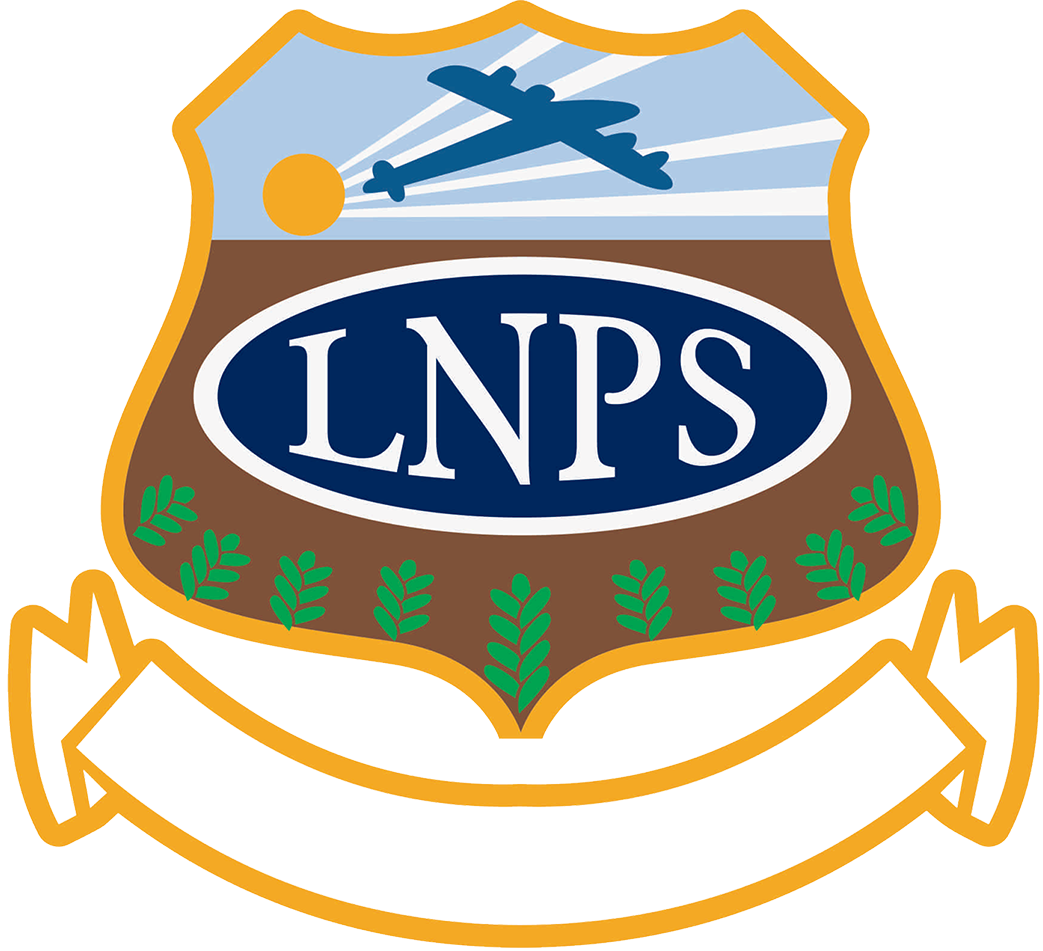
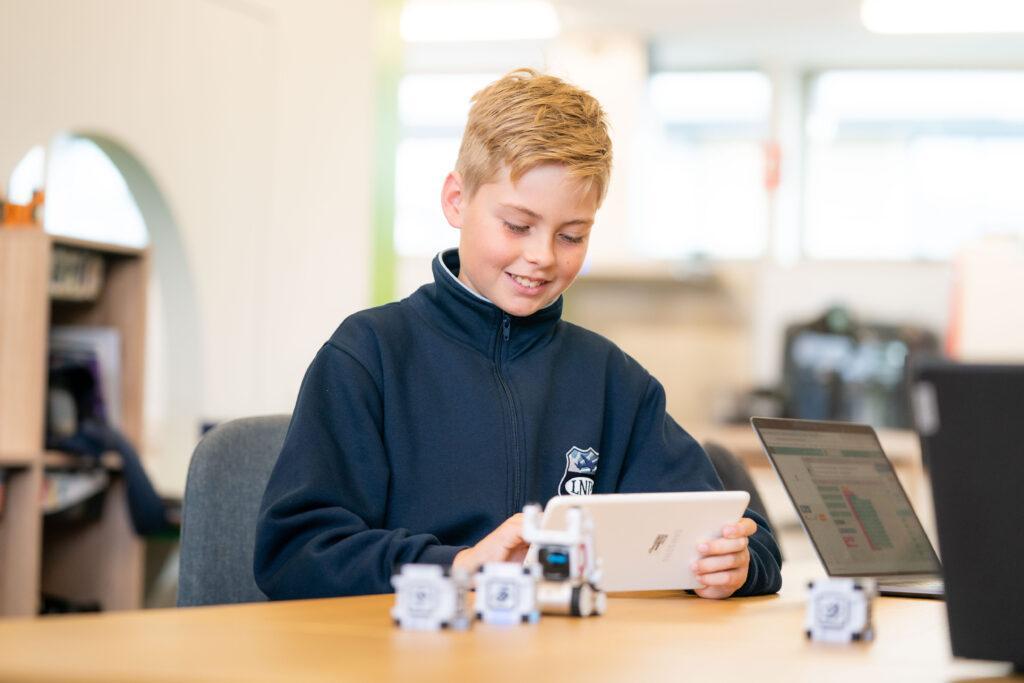 Digital Learning
Digital Learning Specialist Lessons
Specialist Lessons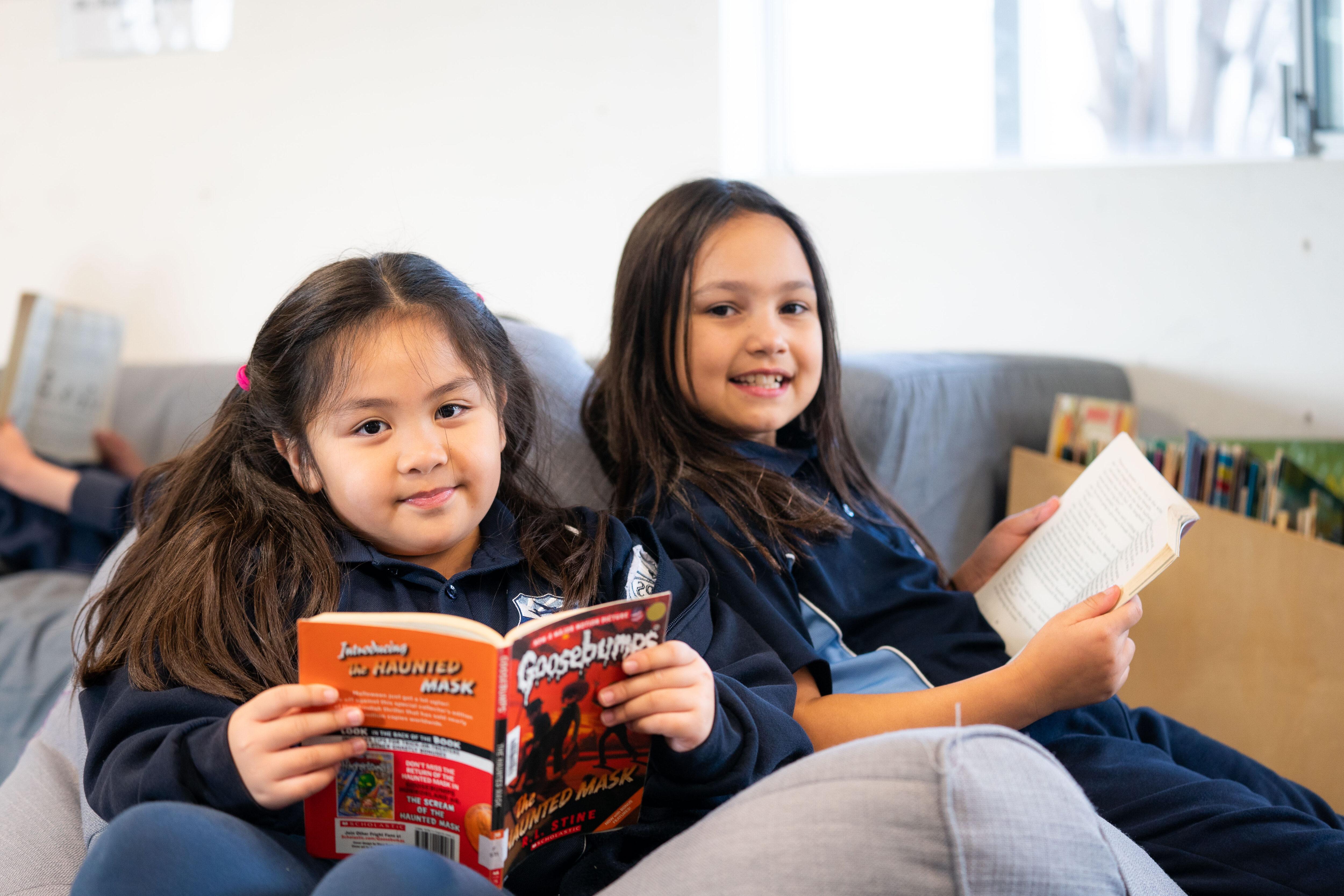 Literacy
Literacy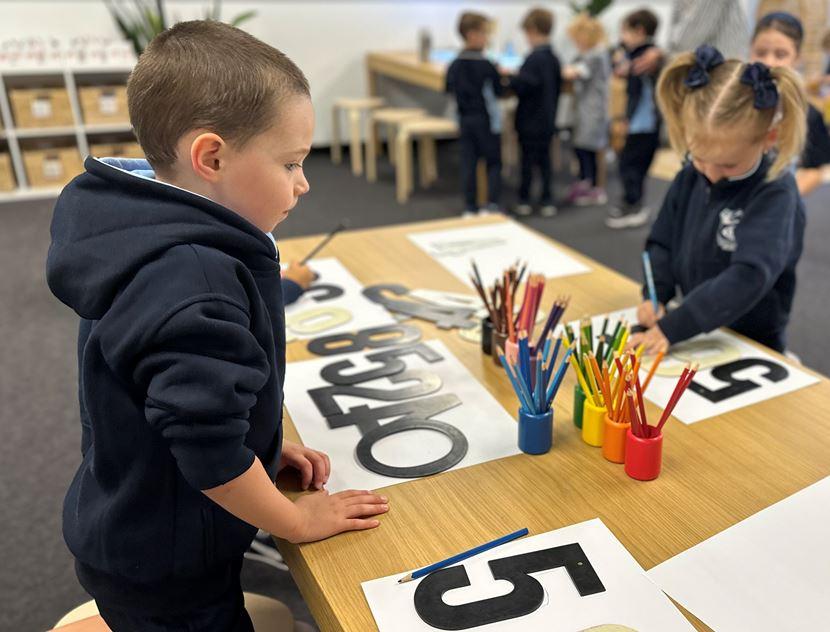 Numeracy
Numeracy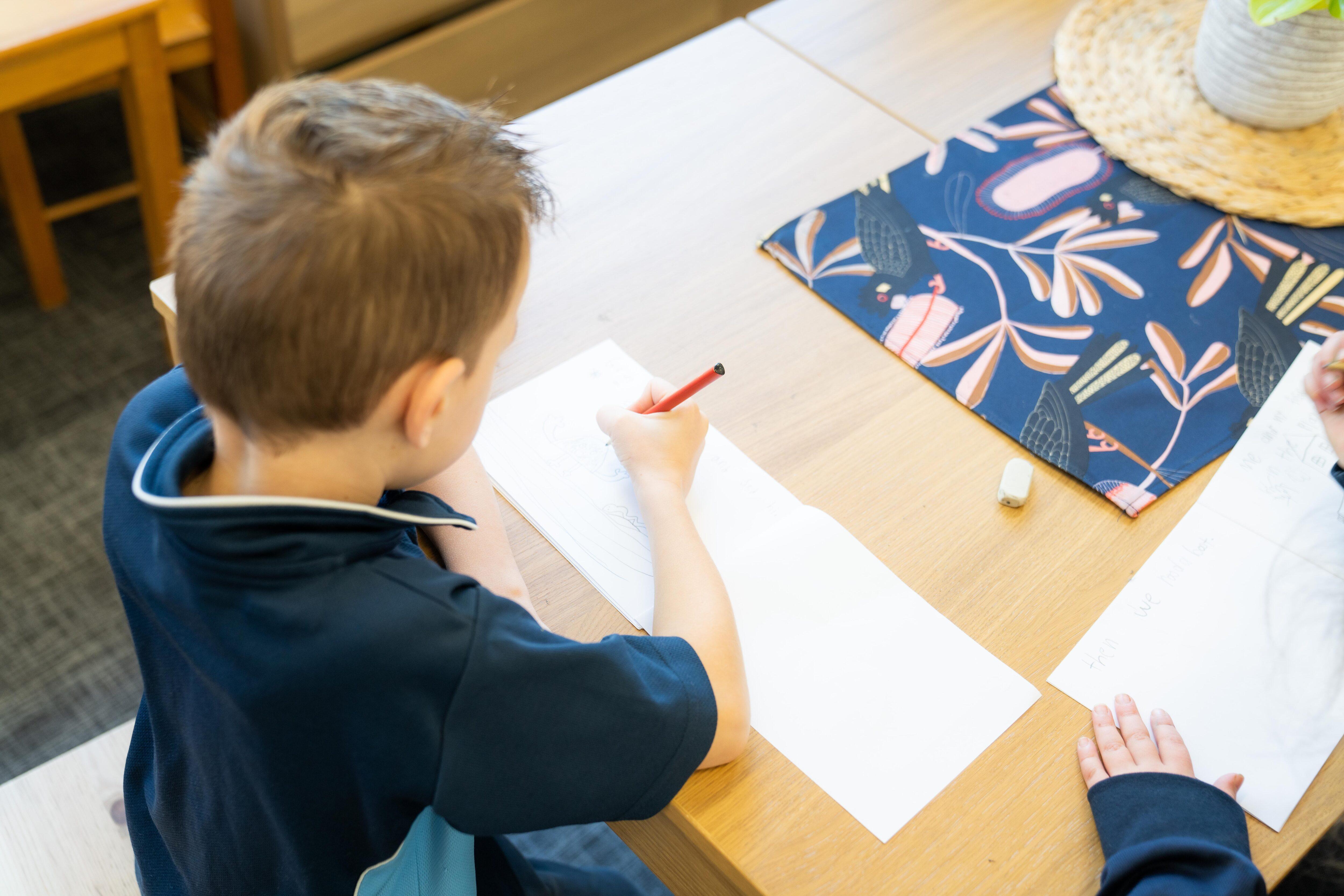 Inquiry
Inquiry